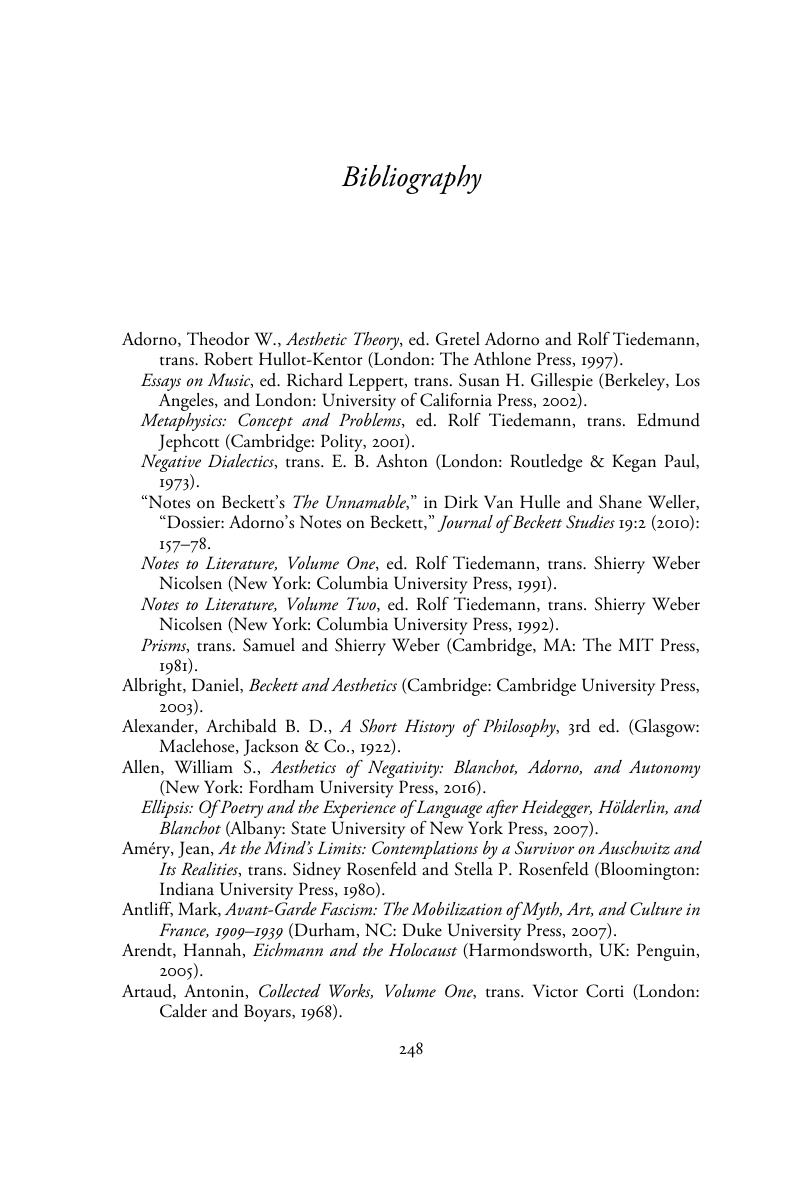Book contents
- Language and Negativity in European Modernism
- Language and Negativity in European Modernism
- Copyright page
- Contents
- Acknowledgments
- Introduction A Literature of the Unword
- Chapter 1 The Language Crisis: From Mallarmé to Mauthner
- Chapter 2 Great Destructive Work: The Interwar Years
- Chapter 3 Performing the Negative: Franz Kafka
- Chapter 4 Humanity in Ruins: Samuel Beckett
- Chapter 5 Writing the Disaster: Maurice Blanchot
- Chapter 6 Through the Thousand Darknesses: Paul Celan
- Chapter 7 Unconditional Negativity: W. G. Sebald
- Chapter 8 Unwording, Terminal and Interminable
- Conclusion The Art of Failure
- Bibliography
- Index
- References
Bibliography
Published online by Cambridge University Press: 05 November 2018
- Language and Negativity in European Modernism
- Language and Negativity in European Modernism
- Copyright page
- Contents
- Acknowledgments
- Introduction A Literature of the Unword
- Chapter 1 The Language Crisis: From Mallarmé to Mauthner
- Chapter 2 Great Destructive Work: The Interwar Years
- Chapter 3 Performing the Negative: Franz Kafka
- Chapter 4 Humanity in Ruins: Samuel Beckett
- Chapter 5 Writing the Disaster: Maurice Blanchot
- Chapter 6 Through the Thousand Darknesses: Paul Celan
- Chapter 7 Unconditional Negativity: W. G. Sebald
- Chapter 8 Unwording, Terminal and Interminable
- Conclusion The Art of Failure
- Bibliography
- Index
- References
Summary

- Type
- Chapter
- Information
- Language and Negativity in European Modernism , pp. 248 - 265Publisher: Cambridge University PressPrint publication year: 2018



